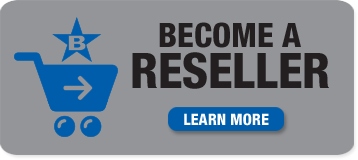During 2020, consumers moved to online shopping platforms with a preference for home delivery for both essential and non-essential items. According to Digital Commerce, 360, worldwide consumers spent $861 billion on online shopping in 2020, a 44% growth over the prior year. As consumers begin to return to brick and mortar retail, they expect a new experience that brings both the digital and physical experience together. The following are just a few consumer needs and preferences that retailers are competing to meet and satisfy.
-
Home delivery preferred. Home delivery is preferred by 66% of global consumers, with 18% opting for in-store pickup and 16% for curbside pickup.
-
Speed and convenience. Over 70% of consumers say speed, convenience, helpful employees and friendly service matter most. Surprisingly, 54% of U.S. consumers say customer experience at most companies needs improvement.
-
Negative experience defined. Negative experiences, like out of stocks, product availability, extended shipping time, are critical to purchasing decisions and are considered bad shopping experiences by 33% of consumers.
-
Last-mile delivery. Over 84% of shoppers are unlikely to buy from a company again after a bad last-mile delivery experience, and 98.1% of consumers say delivery is essential for brand loyalty.
-
One chance. Customers don't give you many chances to get it right. Nearly one out of three customers (32%), said they would leave a brand they love after just one bad experience. Taking it a step further, it takes 12 positive experiences to repair damage caused by one negative one. And that same consumer will tell an average of 9 people about a good brand experience but will tell 16 others about a bad experience.
Last-Mile Delivery Requires A Mobile-First Strategy
To meet and resolve the ever-growing challenges associated with last-mile delivery, over 80% of T&L companies agree they need a solid and transparent mobile-first strategy. Neglecting the last-mile delivery impacts T&L companies in the customer experience, supply chain management and the ability to acquire new revenue streams. More than 58% of those who had a mobile-first strategy said it effectively reduced their operational costs.
Honeywell Productivity Solutions and Services develops and deploys an innovative range of solutions, software and services that help keep people healthy, workers and workplaces safer and more productive, and supply chains and assets more efficient, accurate and reliable. These include:
- Honeywell CT60 Mobile Computer. Honeywell has seen rapid adoption of contactless proof of deliveries. Honeywell CT60 Mobile Computers are designed for delivery drivers that require real-time connectivity to business-critical applications.
- Mobility Edge Platform. Honeywell mobile computers are based on the Mobility Edge platform. Honeywell Mobility Edge is a leader in Android version support, providing the best available security, features, and lifecycle duration of any ruggedized device in the world.
- Honeywell Smart Talk for T&L Communications. Honeywell Smart Talk is a true voice-enabled unified workforce communications application for Transportation & Logistics environment that tackles the problem of fragmented communications.
- Honeywell's Operational Intelligence. Operational Intelligence is a centralized, cloud-based platform to manage the complete lifecycle, operational visibility and performance information of assets, people and tasks. The software platform enables workers and enterprises to predict upcoming problems before they happen and gain critical business insights.

.png)




